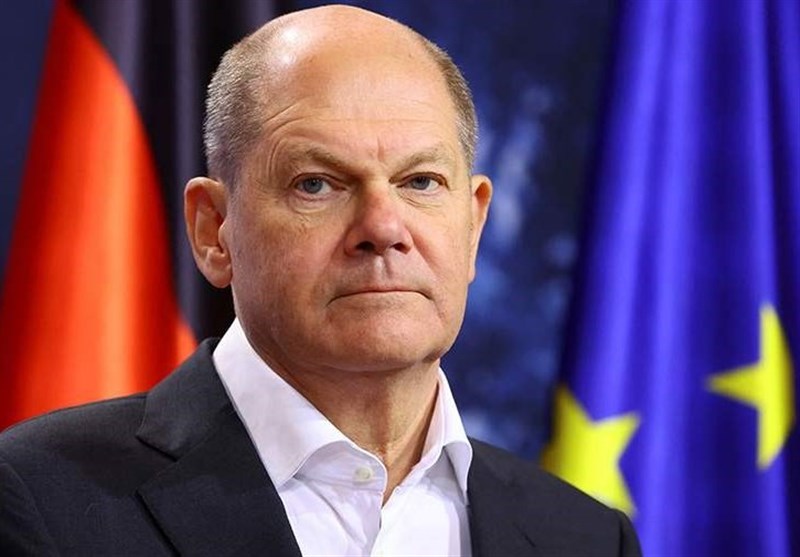The Prime Minister of Germany announced the end of the electricity and gas price braking plan from the beginning of next year

| In a speech focusing on the budget crisis in this country, the Prime Minister of Germany announced the end of the electricity and gas price braking plan from the beginning of next year, and at the same time emphasized that the government will not leave the citizens alone in this situation. |
According to the report of the international group Tasnim news agency, quoted by the German newspaper Tagus Spiegel, in The rise of the financial crisis in Germany caused by the budget impasse caused by the ruling of the Supreme Federal Constitutional Court, Olaf Schultz, the Chancellor of Germany made a government statement in the parliament today (Tuesday).
In his government statement on the budget crisis, he announced the end of the brake plan for electricity and gas prices at the beginning of next year, but at the same time he promised that the government will not leave its citizens alone.
Schultz said: End of brake Prices are possible because electricity and gas tariffs are again available across Germany, which are below the upper limit of the price brake. Moreover, gas storage facilities are so well filled that we don’t expect sudden price jumps.
When it comes to dealing with the debt brake, Schulz said many things are not legally clear. The chancellor said: With today’s knowledge, the traffic light coalition followed different policies in the past. The chancellor made the parliament laugh with his words that he prioritizes care over speed in the budget policy.
The Federal Constitutional Court recently invalidated the reallocation of 60 billion euros in the 2021 budget. The money was approved as a corona loan, but has since been used to protect the climate and modernize the economy. At the same time, the judges decided that the government is not allowed to use the emergency loans for the following years in this way. The federal government has done this in several special funds, including the energy price cap. Therefore, unlike previously planned, the Bundestag cannot decide on the next year’s budget this week. and creates for all current and future governments, at the federal and state levels; A fact that, however, makes it more difficult for our country to achieve important and common goals.
At the same time, Schultz thanked the Union of United Christian Parties for its political cooperation on the important political issues of Corona and the war in Ukraine.
Schultz reminded that Germany is facing challenges that our republic has probably never experienced before with this concentration and intensity. He mentioned the covid epidemic, the consequences of the Russian war, climate change, inflation and flooding in the Ahr Valley. The German Prime Minister described natural gas as an energy bridge for the German economy and the social and economic consequences. He recalled the extensive cut off of Russian gas imports, which necessitated price control and investment in liquefied gas. He also said that Germany also got through the Corona crisis better than other countries thanks to the government’s support. In addition, it was necessary and right to create a special fund for the German army in response to the Russian war.
Schultz also said that the government would not leave the citizens alone with their financial problems. He added: I announced last year that you will never walk alone and the situation will remain the same. Where will the economic growth be in the future? “Germany is competing with other countries around the world,” he said.
On Monday, the federal cabinet approved a supplementary budget in which the financial planning for the current year is set on a constitutional basis. . The Bundestag is scheduled to debate the draft for the first time on Friday.
According to the Federal Constitutional Court’s ruling on the 2021 supplementary budget, the federal government will have a deficit of 60 billion euros over the next four years. But here is the question, what should be done now? The parties have been discussing this question and the way out of the crisis since the day of the decision.
Germans fear about the consequences of the current budget crisis for their economy and their families
Now, in this situation, the results of a poll show that with 35%, more than a third of Germans believe that a federal government led by the opposition (the Union of Christian United Parties) is better than the current coalition called Traffic Light with the budget crisis. The current will cope. But the majority of 59% of German citizens do not believe that the union can manage crises better. Only the supporters of the union parties themselves believe that a federal government led by the union can better deal with the current budget crisis than the federal government. According to this poll commissioned by Germany’s Artil and NTV. When asked how the billion-dollar gap in the budget should be filled, almost half of Germans (46 percent) agree with budget cuts or that previously planned projects should be abandoned. About a third (34 percent) believe the federal government should take on more debt to close the budget gap. 8% are in favor of raising taxes to close the budget gap, and 12% do not have the confidence to assess this question.
More than half of Germans (53%) fear that the current budget crisis will have negative consequences for Have their own or their family’s financial situation. 43 percent believe that the budget crisis will have no consequences for their financial situation. German Puma postponed due to software problems
end of message/
| Publisher | Tasnim News |


